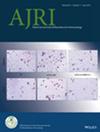Calycosin Protects Against Chronic Prostatitis via Regulating Cellular Pyroptosis
Abstract
Background
Chronic prostatitis (CP), a frequent male urological disease, is featured with chronic pelvic pain and various discomfort. Calycosin has anti-inflammatory effect and its exact mechanism in CP remains unknown.
Objective
Our research was designed to explain the underlying mechanism of calycosin in CP and illustrate our findings in the rats and LPS-ATP-induced RWPE-1 cells.
Methods
The pathology of prostate tissues was analyzed by HE staining and histological inflammation score. The concentration of inflammatory factors were detected via ELISA assay. Besides, the representative biomarkers of oxidative stress were measured through detection kits. The ROS production, NLRP3 and GSDMD expression were evaluated by immunofluorescence or immumohistochemical staining. Furthermore, the expression of NF-kBp65 pathway-associated proteins and pyroptosis-associated proteins were detected by western blotting. RWPE-1 cells growth and pyroptosis were assessed by CCK-8 and flow cytometry, respectively. mRNA levels of pyroptosis markers were detected by qRT-PCR analysis.
Results
The CP model in vivo and in vitro was successfully established by carrageenan and LPS-ATP, respectively. Calycosin substantially ameliorated the pathological damage of prostate tissue. Moreover, calycosin treatment promoted RWPE-1 cells viability and reduced pyroptosis. Calycosin remarkably reduced the inflammatory factors secretion and oxidative stress markers. Calycosin stimulation effectively suppressed the pyroptosis, which was linked with inactivation of the NF-kBp65 signaling pathway. These beneficial effects of calycosin were similar to the NLRP3 inhibitor (MCC950).
Conclusion
To sum up, our observations indicated that calycosin protects against CP via suppressing inflammation, oxidative stress, and pyroptosis through NF-kBp65 pathway, thereby serving as a promising therapy for CP treatment.

 求助内容:
求助内容: 应助结果提醒方式:
应助结果提醒方式:


